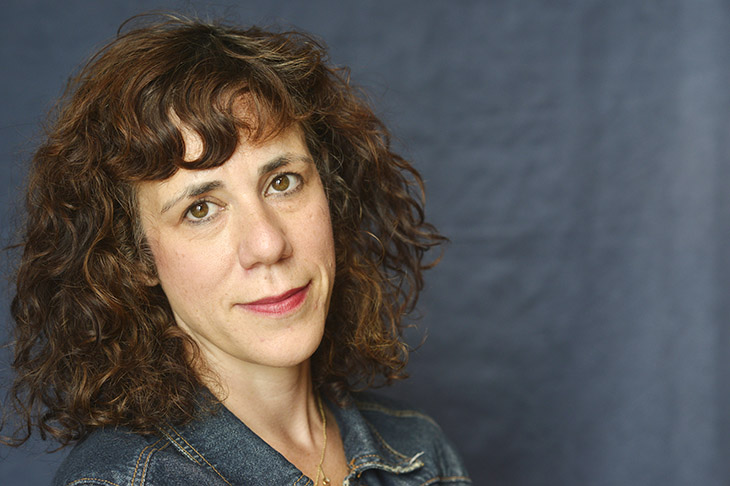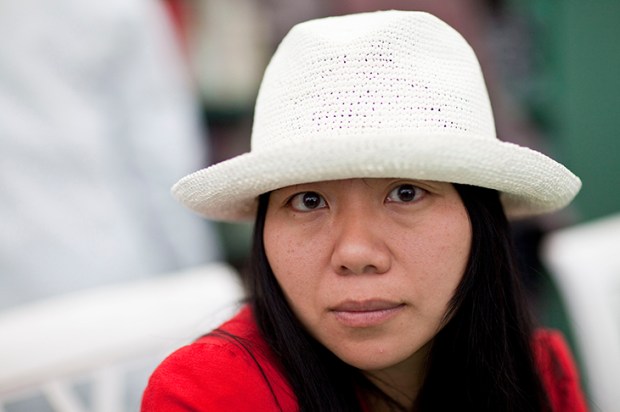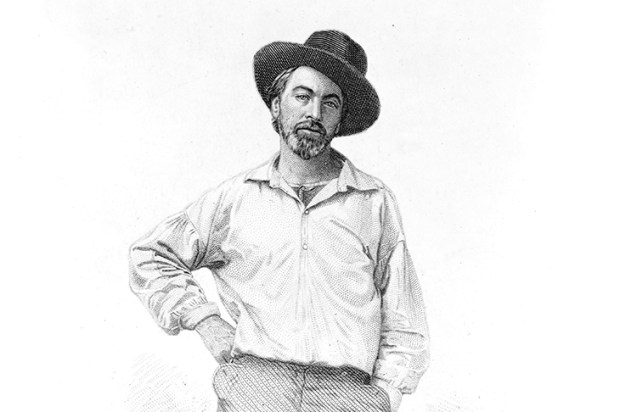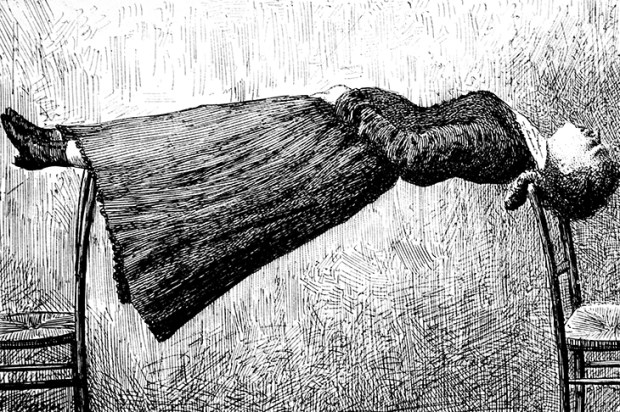In an early chapter of All Grown Up, the narrator Andrea says to her therapist: ‘Why is being single the only thing people think of when they think of me? I’m other things, too.’ ‘Tell me who you are, then,’ says the therapist. And so Andrea tells her that she’s a woman, a New Yorker, that she works in advertising as a designer, that she’s a daughter, a sister and an aunt. In her head, she adds: ‘I’m alone. I’m a drinker. I’m a former artist. I’m a shrieker in bed. I’m the captain of the sinking ship that is my flesh.’
We meet Andrea when she’s 39, asking herself, with increasing desperation, ‘What next?’ This is emphatically, refreshingly, not a novel about being single: it is a novel about not knowing what it is that you want. Often, Andrea finds this difficult:
People architect new lives all the time. I know this because I never see them again once they find these new lives… It happens constantly. It’s just me. I haven’t built anything new. I’m the one getting left behind.
At other times, though, her improvised life is a source of joy and even pride. She compares herself to her impossibly perfect friend Indigo, whose
life is architected, elegant and angular, a beauty to behold, and mine is a stew, a juicy, sloppy mess of ingredients and feelings and emotions, too much salt and spice, too much anxiety, always a little dribbling down the front of my shirt. But have you tasted it? Have you tasted it? It’s delicious.
Perhaps a better gastronomic analogy for Jami Attenberg’s novel would be a cheese soufflé — light yet rich, with a saving smidgen of nose-watering mustard powder. This is certainly true of the opening chapters, which pile up overlapping vignettes to give us a swift, compelling portrait of our narrator, guzzling wine and racing through bedfellows. All Grown Up avoids Sex-and-the-City territory, thanks to breakneck speed and Teflon-tough humour. Here the narrator describes a fellow wedding guest:
The fourth woman is Karen, a real career gal. I say this not to make fun of her but because she described herself as such, which means it is doubly true.
Andrea gives in to temptation and calls her dealer after years of abstinence:
You can’t believe the number still works. He says, ‘It’s been a while since we last met.’ You say, ‘I’ve been busy,’ as if you need to justify why you’re not doing drugs anymore.
But in this short novel’s second half, the soufflé starts to sag. The warning signs had been there when, early on, Andrea meets a friendly furniture mover called Alonzo, who senses she’s carrying a lot of something and lays on his hands.
I start to feel a ball of heat gathering in my chest, above my breasts, just beneath my clavicle, and I hear Alonzo mutter, ‘There it is’.
If any part of you struggles to take this seriously, then you are likely to fall out of love with this initially lovable book —because it soon starts to take itself very seriously indeed. The Andrea of the first half is deliciously alive to Insta-speak phoneyisms. As Indigo describes new motherhood,‘she looks at her child, deeply, nearly lustily. Don’t say it, I think. “Blessed,” she sighs.’ By the 14th chapter, Andrea herself is trotting out such banalities as ‘today is not about me. Today is about her’, entirely without irony. Or how about, ‘We’ve been working really hard at hanging out one-on-one ever since she and her husband split up’?
As Andrea turns 40 and mortality starts to bite, the various narratives fail to cohere. Her dying infant niece feels like an unsuccessful attempt to add emotional heft. A backstory about her father, who died from a heroin overdose, is retold so many times that Andrea starts to remind you of that annoying, guilt-inducing friend who keeps alluding to her one-time self-harm habit / bout of anorexia / nasty ex, just so you won’t forget what she’s been through.
‘A thing I know now as an adult is this,’ she tells us towards the end. ‘There is no one cooler than a teenager. After our teenage years the game is over and we’re all just holding on till death.’ Those who disagree should skip the soufflé.
Got something to add? Join the discussion and comment below.
Get 10 issues for just $10
Subscribe to The Spectator Australia today for the next 10 magazine issues, plus full online access, for just $10.
You might disagree with half of it, but you’ll enjoy reading all of it. Try your first month for free, then just $2 a week for the remainder of your first year.














Comments
Don't miss out
Join the conversation with other Spectator Australia readers. Subscribe to leave a comment.
SUBSCRIBEAlready a subscriber? Log in